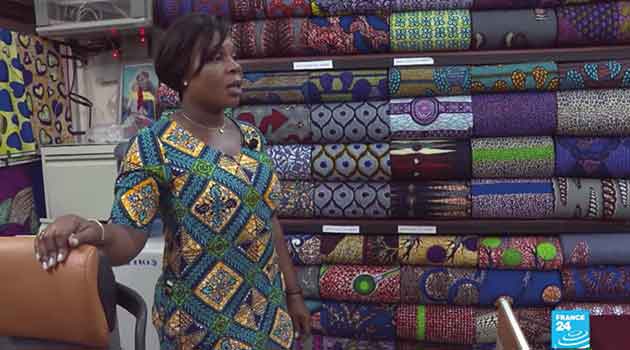Written by Faidat Bello
The damage of the Covid-19 pandemic on global economy and how much African businesses have been affected, is heavily evident.
A lot of factories closed down, travel restrictions, no production from designers, no fashion shows, events are postponed till further notice, some brands had to set up their businesses online in order to make up for sales lost to store closures, the supply chain interrupted, the workers and the small and upcoming fashion start-ups have been left to feel the worse effects.
The first webinar in June, over 100 Africa fashion creators and innovators across the continent joined the series held by Fashionomics Africa, an initiative launched by African Development Bank Group for job opportunity and drive growth for the local fashion industry, worth $31 billion. The group discussed the credibility of several digital innovations that would help designers transform their businesses for a post-pandemic reality.
A lot of designers rely on store sales, in-house production and physical shows to gain crowd followings and run their businesses. Africa’s e-commerce industry is stunted by last-mile delivery challenges, and a years-long effort to bring raw material production domestically means that all manufacturing is closed. The resulting action plan from June’s meetings: fashion designers and creators in Africa must make use of online strategies to strengthen their businesses.
The second webinar on Thursday 3 September, by the African Development Bank’s Fashionomics Africa initiative in collaboration with the United Nations Environment Programme which was joined by Eighty-eighth members was focused on building flexible value chains through innovative business models that will keep garments in use for a longer time, recycling and use renewable materials into new products.
The panel comprised of industry experts from Parsons School of Design in New-York, the UK-based charity – Ellen MacArthur Foundation and the creative minds behind sustainable African fashion brands, Orange Culture, Mariama Fashion Production and Qaaldesigns.
“My dream is to develop a healthy fashion industry in Africa. We need to be able to rely and build ourselves from our own system. At the end of the day, we have so much that needs to be done and we can’t do it alone,” Orange Culture Adebayo Oke-Lawal, said.
“Covid-19 forced our world to rethink our system. We can absolutely do this in an excellent way. It’s a question of interconnection and understanding. My waste could be someone else’s resources. What is needed is collaboration and breaking down the typical silos fashionpreneurs face in the industry,” said Brendan McCarthy of the Parsons School of Design.
The aim of the Bank’s Fashionomics Africa platform is to enable African entrepreneurs operating in the Textile, Apparel and Accessories industry to create and grow their businesses, with a focus on women and youth. Through the Fashionomics Africa Digital Marketplace and Mobile App, the Bank is also analyzing the impact of the textile industry on climate change and environment to deploy climate-friendly solutions in Africa.
McCarthy, who said digital tools have become a phenomenon and have revolutionized the way the fashion industry operates, noted that Parsons School of Design is working closely with the Bank to leverage digital tools to support the African textile and fashion industry.
“African fashion entrepreneurs see in the pandemic and the acceleration of digital tools, an opportunity to reconceptualize and better educate designers, but also consumers,” said Bintou Sadio Diallo, who spoke on behalf of the African Development Bank.
The Fashionomics Africa initiative intends to contribute to the African Textile, Apparel & Accessories industry by increasing the number of entrepreneurs accessing markets through e-commerce capabilities, boosting their access to finance, technical and business skills and forging strategic partnerships with key contributors.
The Fashionomics Africa webinar series is available for fashion entrepreneurs, digital enthusiasts and creative minds on the platform.




















